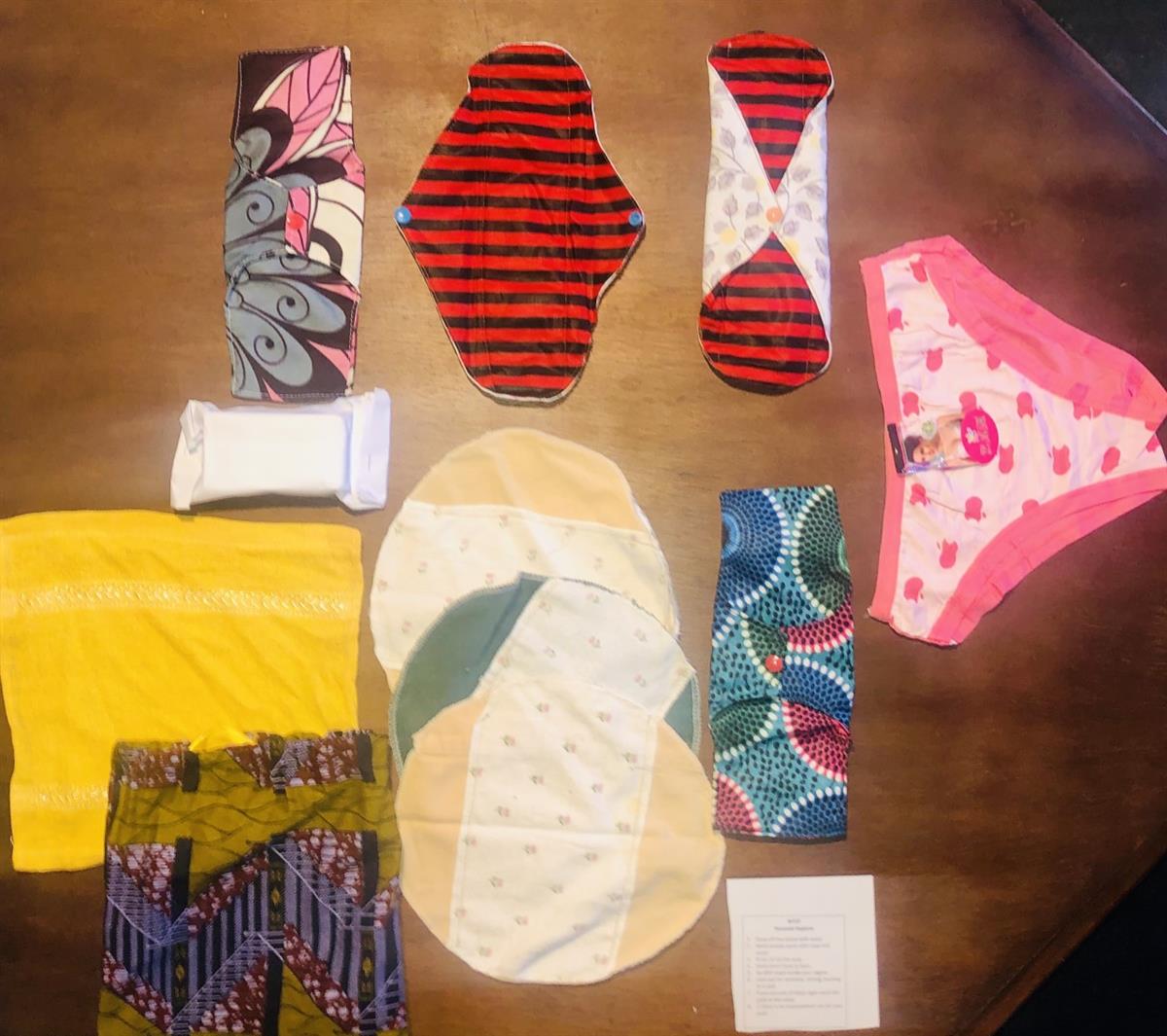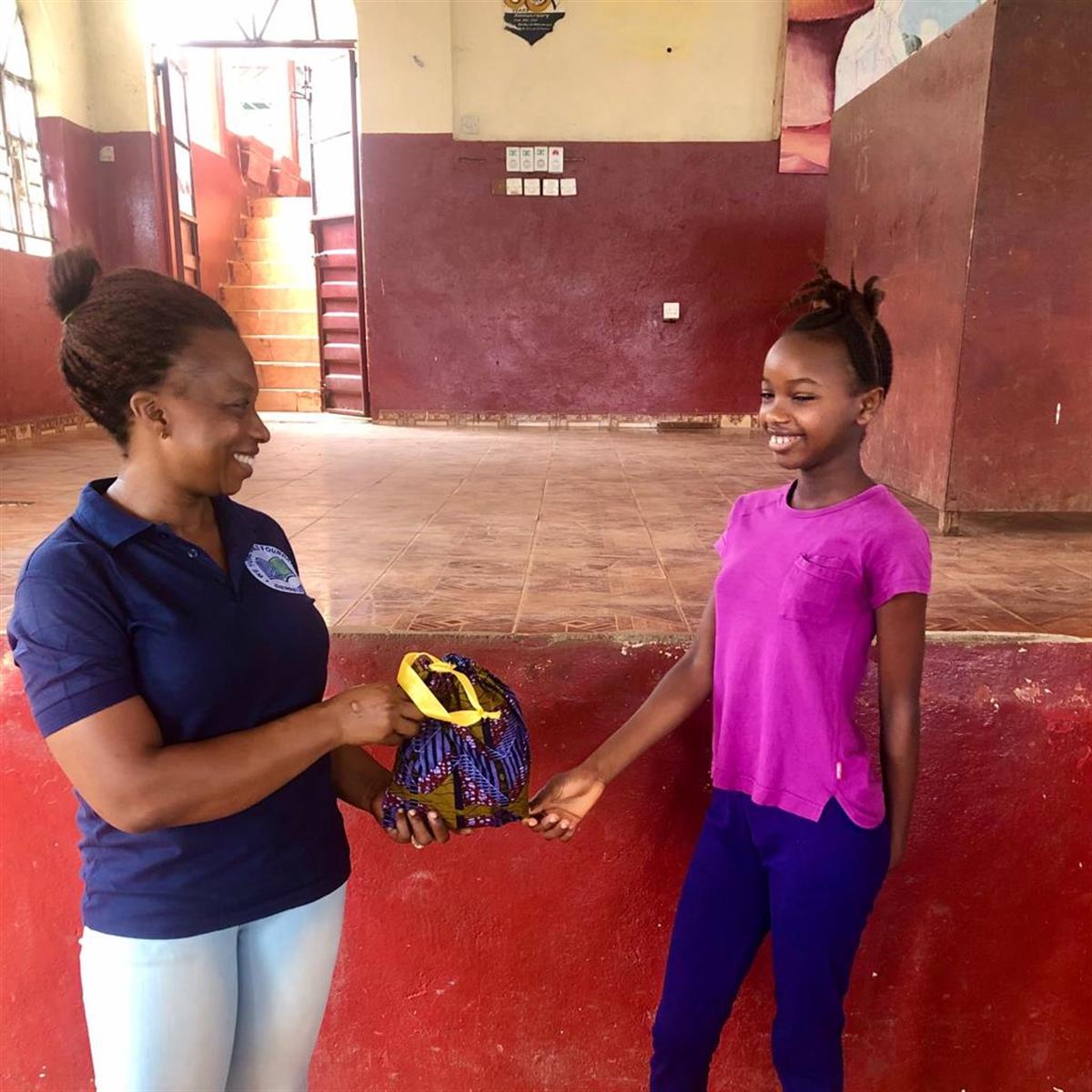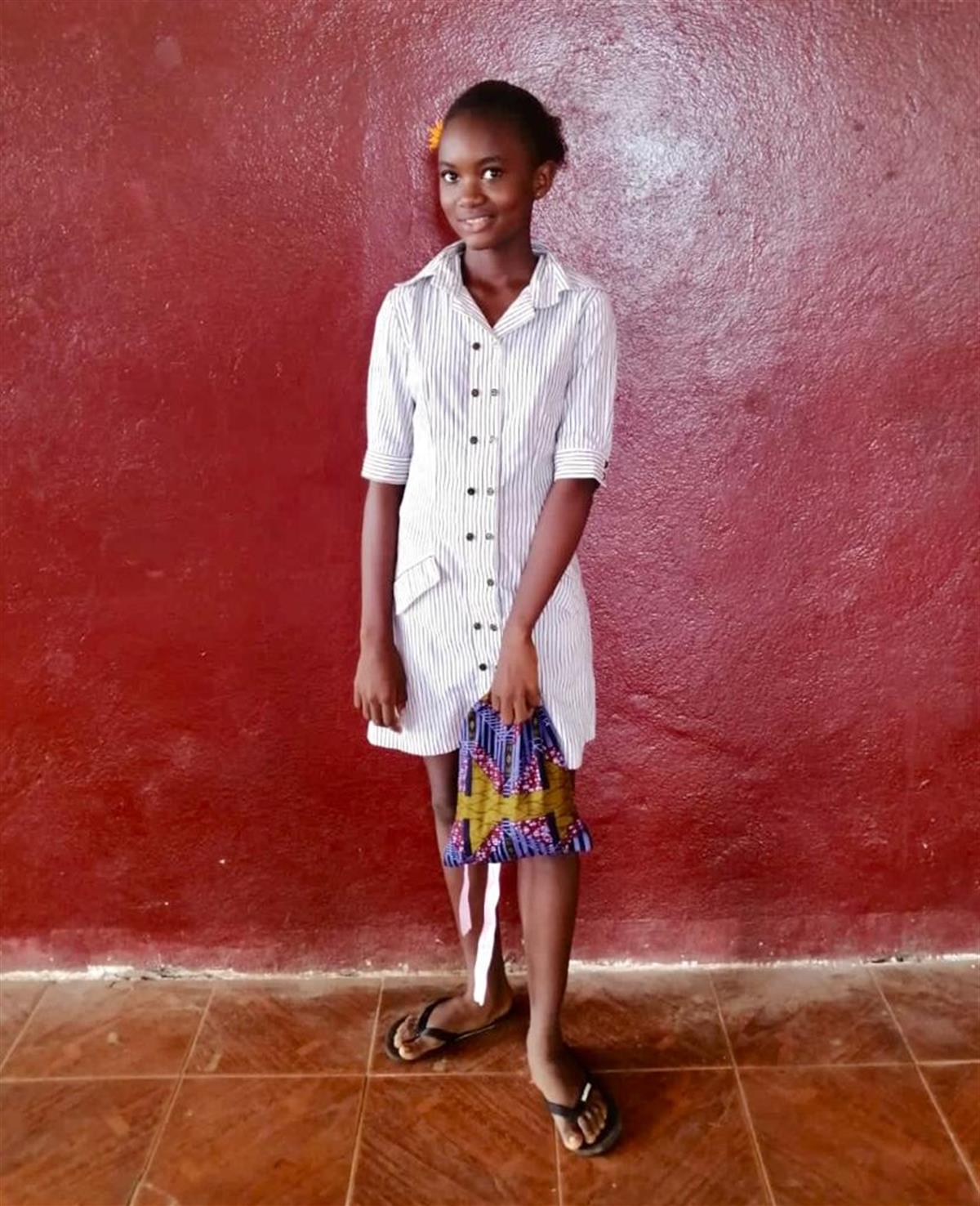Hannah Kamara is a 13-years-old girl attending Holy Family School in Freetown. Thanks to AVSI's Distance Support Project , Hannah and her schoolmates have access to a quality education until the end of high school. They also receive reusable sanitary pads and other feminine hygiene products, in a country where menstrual cycles still affect school attendance.
According to Unesco, millions of girls in Sub-Sahara countries, including Sierra Leone, miss up to 20% of school because they do not have access to feminine hygiene products. Poverty and cultural stigma around menstruation are the main reasons for the difficulty of obtaining and using these products: most girls feel shame and fear during their periods, so they prefer to not go to school.
Reusable Sanitary Pads Kit
For this reason, AVSI decided to step in by organizing a workshop during which Hannah and 53 female students have received a Reusable Sanitary Pads Kit thanks to our Distance Support Activity. The kit contains:
- three reusable sanitary pads;
- three panty liner;
- a towel and a bar of soap for personal hygiene;
- an instruction card

“I am happy for both the workshop and the reusable sanitary pads kit. Usually, we cannot afford sanitary pads since they are really expensive so either we use those AVSI provides us or manage it somehow," explains Hannah.
Working in partnership with the We Yone Child Fundation, a local NGO that focuses on quality education and gender equality, AVSI held a workshop with the 54 young girls' parents and caregivers to help them monitor and support their daughters during the menstrual cycle. They also learned why menstruation should not be a taboo.
"The workshop was very interesting," says Hannah's brother. "Before the workshop, I thought that menstruation was a female issue, but then I realized that it is also a male issue. Not only the husband or the father should pay attention to it, but everyone should".
During the workshop we focused on the importance of a constant dialogue between parents and their children. A menstrual hygiene management training and a proper parents’ monitoring of sanitary pads' correct use are helpful in protecting girls' health.


"After the training, I explained everything I learned to my mother and my aunts so they can oversee and help Hannah properly," added Hannah's brother. "Menstruation should be everyone’s issue, but my mother and my aunts can better manage it since they have a clearer idea and experience."
Thanks to this activity, 54 young girls now can feel free and confident to attend school even during their periods. Moreover, the girls realized they should not be ashamed to talk about their menstrual cycle with their parents or caregivers since it is nothing more than a natural process.
We have decided to distribute reusable sanitary pads instead of disposable ones because we also wanted to guarantee long-term economic and environmental impact. Disposable sanitary pads are not only very expensive and unsustainable for the households, but they are also made of 90% plastic. In Sierra Leone, plastic is not recyclable and contributes negatively to the environment by releasing vast amounts of greenhouse gases